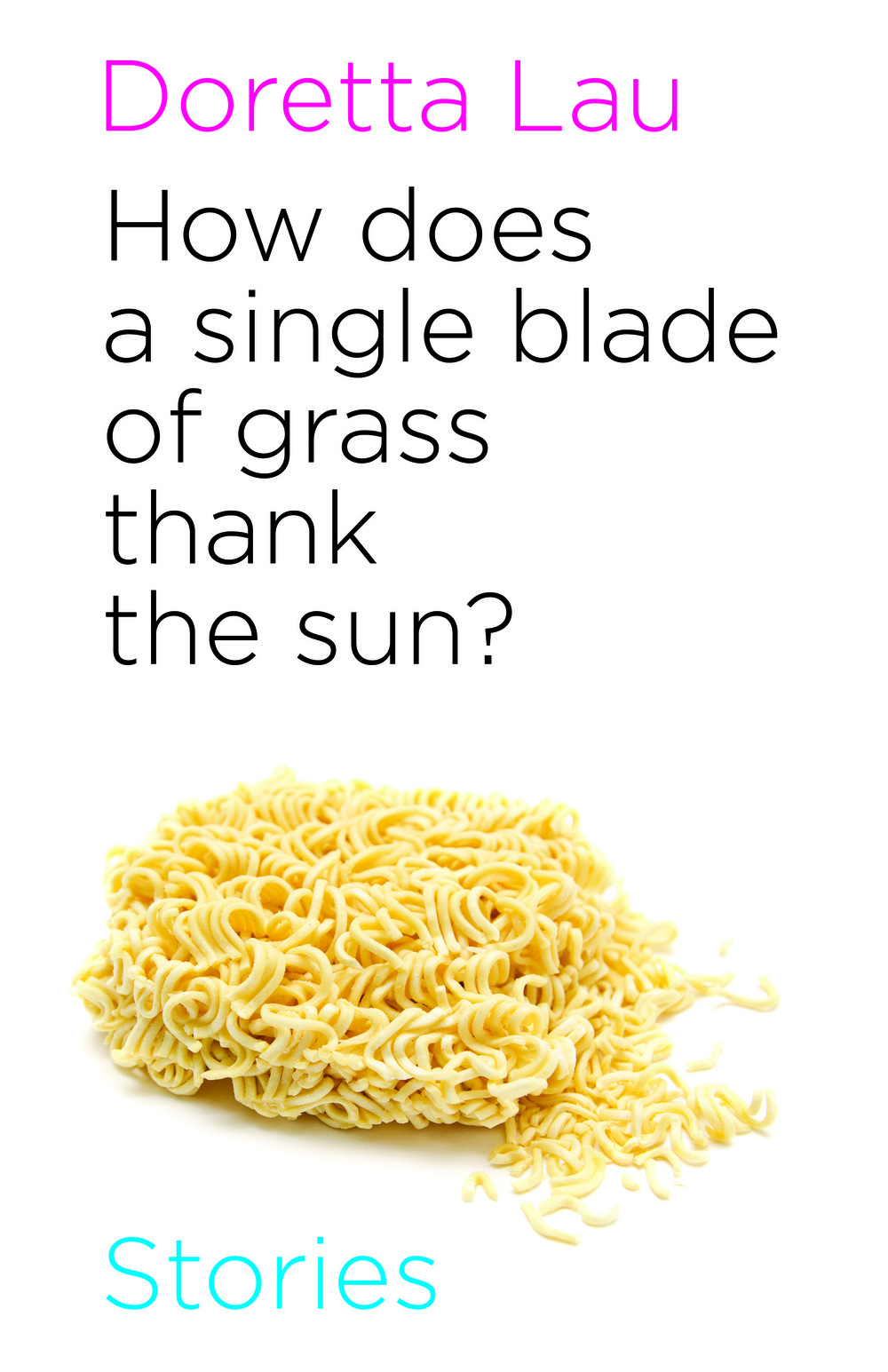Please support our coverage of democratic movements and become a monthly supporter of rabble.ca.
“I knew that I would have a better chance of selling a love story than an action film because I was a woman,” says one of the characters, struggling over her film-school thesis, at the centre of Doretta Lau’s short story collection, How Does A Single Blade of Grass Thank the Sun? “That was supposed to be my territory: shopping and grooming and courtship and marriage.” Lau subverts such regressive gender expectations in the book — a stylistically diverse debut anchored by young, urban Asian-Canadian protagonists.
“In school, I’d read a lot of work by writers from a certain generation — Joy Kogawa, Wayson Choy and others — that told stories about the trauma of immigration, the building of the railroad, internment; stories that helped reshape our thinking about Canada,” says Lau. “They’ve given me this incredible opportunity to write something new. I find it problematic that the white male voice is considered the standard in literature. It’s important for me that the characters in my work are Asian-Canadian, but I want to write stories about living life — poorly or well — today.”
Lau wrote the 12 stories in How does… over a course of ten years while studying in New York and living in Vancouver and Hong Kong, yet the world she creates is assuredly of the present.
A young New Yorker makes a meagre living dodging paintballs and rotten vegetables at a Coney Island carnival. A depressed young woman develops an ambiguous friendship with a young guitarist, who lives in the same Vancouver apartment building, while her boyfriend is away in London. A washed-up child television star leaves her rich, aging fiancé at the altar; the next morning she finds that her mother, who pushed her into the engagement, has married the old man instead.
“I’m interested in isolating moments in someone’s life,” says Lau. “The moment where they make a decision that alters things, or where something life-changing happens.”
In ‘Left and Leaving,’ which is set in Vancouver’s downtown eastside, that life-changing moment comes in the midst of a crisis where local women have gone missing, many of them aboriginal and involved in sex work. Annie and Lisa are half-sisters living with a foster family; they haven’t seen their mother in many long months after passing through the homes of several family members. Lisa, the more reckless of the siblings, spirals out of control, just as Annie is offered a chance at permanence and stability.
Lau’s confident portrayal of the bond between the young narrator and her half-sister, despite their wildly divergent responses to abandonment and trauma, makes it one of the collection’s strongest stories.
A melancholy tone weaves through several of the stories. Lau’s young narrators find themselves drifting through their lives, on a languid, almost half-hearted search for love or purpose; there is a palpable sense of surprise when they find it.
‘Days of Being Wild,’ which was first published in Ricepaper Magazine, is a delicate rumination on the slow, firm pull of grief and how our pain can blind us to the love of others. The story shares its title with Hong Kong director Wong Kar-wai’s first film, which has been widely praised for its striking visual style and emotional power.
Lau references art, music and film frequently throughout the collection; pianist Glenn Gould, artist Jeff Wall and musician Cat Power appear either as fictionalized versions of themselves or as touchstones for Lau’s characters.
“In the urban landscape, music is the flora and the fauna. It is part of the fabric of our lives,” says Lau.
Her use of artists and musicians hits the mark in ‘Two-Part Invention’, a deliciously off-kilter story where Gould makes an appearance in a small-town diner, summoned from the after-life by a young admirer hoping for love. But the constant references to indie-rock bands in ‘The Boy Next Door’ add little to our understanding of the story’s out of work photographer; baring the alt-music initiate, they function more as distraction than illumination.
The collection closes with the stunning title story, a smart, satirical jab at racist stereotypes.
Five rebellious Vancouverites, “slanty-eyed teenage disappointments with no better place to haunt but the schoolyard” embark on a midnight strike against a local symbol of colonial hubris. At a sentence level the story sparks, perfectly capturing the tenuous bravado of a young activist, convinced of his revolutionary potential and the rightness of his argument, even as he seems influenced more by the action films of John Woo than the theory of Mao or Fanon.
It’s not the only explicitly political story in the collection — another, less successful entry attempts to address the effect of internalized racism on a young school girl — but it is a rare gem because it tackles the weighty, painful legacy of anti-Asian racism with humour and light, energetic prose. And, readers have taken notice: the story was shortlisted for the prestigious Journey Prize in 2013, and the collection was recently long-listed for the Frank O’Connor International Short Story Award.
“I didn’t expect that 20 year old guys who had lived their whole lives in New York to be interested in the book, but they have been. It seems to translate to a lot of people’s experience,” says Lau, who has eschewed the idea that she is trying to push an agenda or ‘message’ through her writing. “There are so many books that were important to me as a kid. It’s amazing to me that my book can be that for someone else.”
Yutaka Dirks is a tenant organizer and writer. His fiction and essays have appeared in literary journals and activist publications including the White Wall Review, Rhubarb Magazine and Beautiful Trouble: A toolbox for revolution. He has a serious love for stories of all stripes.



